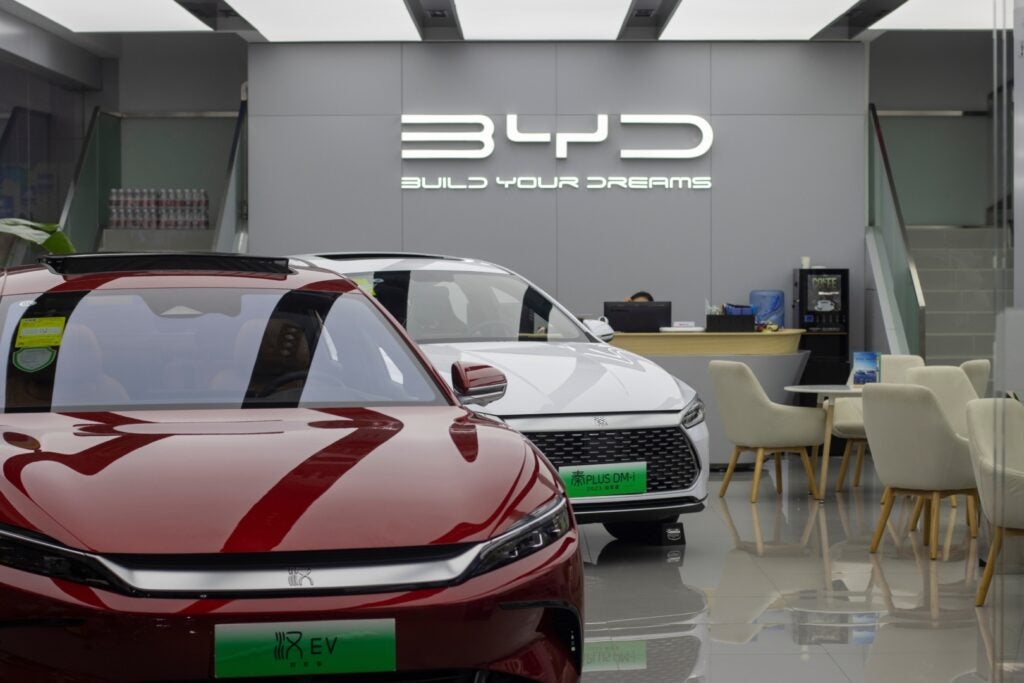Unveiling Labor Concerns: BYD’s Brazilian Factory Contracts Raise Eyebrows
A recent report has brought to light potential labor law violations at BYD’s factory in Brazil, raising significant concerns about workers’ rights and corporate compliance. As the global manufacturing landscape faces increasing scrutiny, this situation could have broader implications for the industry, particularly regarding how corporations uphold ethical labor practices in emerging markets.
The Context of BYD’s Operations in Brazil
BYD, short for Build Your Dreams, is a Chinese multinational company known for its innovative electric vehicles and renewable energy solutions. The company has made substantial investments in Brazil, establishing a factory in the northeastern state of Bahia in 2015. This facility is pivotal for BYD’s strategy to tap into the South American market, particularly as the demand for electric vehicles surges globally.
However, the recent revelations regarding labor concerns at this factory have sparked a firestorm of debate. Reports indicate that workers at the facility may be subjected to unfavorable working conditions, inadequate wages, and potential violations of Brazil’s labor laws. These allegations not only pose a risk to the company’s reputation but also highlight the challenges faced by multinational corporations in ensuring compliance with local labor regulations.
Understanding Labor Law Violations
Labor law violations can encompass a wide range of issues, including but not limited to:
- **Unfair wages:** Paying employees below the minimum wage or not compensating them for overtime work.
- **Unsafe working conditions:** Failing to provide a safe environment, which can lead to workplace injuries.
- **Lack of benefits:** Not offering necessary benefits such as health insurance, paid leave, or retirement plans.
- **Discrimination:** Treating workers unfairly based on race, gender, or other protected characteristics.
In Brazil, labor laws are designed to protect workers and ensure fair treatment. The allegations against BYD suggest that the company may not be fully adhering to these legal frameworks, which can lead to severe repercussions, including fines and damage to its brand image.
Implications for Workers’ Rights
The concerns surrounding BYD’s factory contracts bring to the forefront the broader issue of workers’ rights in global supply chains. With many companies seeking to reduce costs by manufacturing in countries with cheaper labor, there is a growing risk of exploiting vulnerable workers. This situation forces stakeholders to consider the ethical implications of their purchasing decisions.
Furthermore, the labor concerns at BYD’s factory could have ripple effects across the industry. Workers who feel oppressed or undervalued may be less productive, leading to higher turnover rates and diminished morale. In a sector that relies heavily on innovation and efficiency, maintaining a motivated workforce is essential for success.
Corporate Accountability and Transparency
As consumers become more aware of corporate practices, companies are under pressure to demonstrate accountability and transparency in their operations. This is particularly true for BYD, which markets itself as a leader in sustainability and ethical manufacturing. To maintain its reputation, BYD must address these labor concerns head-on.
Several steps can be taken to ensure compliance with labor laws and protect workers’ rights:
- **Conduct regular audits:** Implementing third-party audits can help identify potential labor violations and ensure compliance with local laws.
- **Establish clear policies:** Creating and enforcing clear labor policies that prioritize worker rights is crucial.
- **Engage with workers:** Encouraging open communication between management and workers can help identify issues before they escalate.
- **Invest in training:** Providing training for both management and workers on labor rights can foster a more respectful workplace environment.
The Role of Consumers and Advocacy Groups
Consumers play a pivotal role in shaping corporate practices. By demanding transparency and ethical behavior from companies, consumers can drive change. Advocacy groups also play a crucial role in holding corporations accountable. They can raise awareness about labor violations, mobilize public opinion, and pressure companies to adopt fair labor practices.
In the age of social media, stories of labor violations can quickly go viral, influencing public perception and, ultimately, purchasing decisions. Companies like BYD must recognize the power of informed consumers and advocates in promoting corporate responsibility.
Future Outlook: A Call for Ethical Manufacturing
The ongoing situation at BYD’s Brazilian factory serves as a reminder of the need for ethical manufacturing practices in a globalized economy. As the world becomes increasingly interconnected, companies must prioritize the welfare of their workers, especially in regions where labor laws may be less stringent.
While the allegations against BYD are concerning, they also present an opportunity for the company to demonstrate its commitment to ethical practices. By taking proactive steps to address the issues raised, BYD can not only safeguard its reputation but also set a precedent for other companies operating in similar markets.
Conclusion: A Path Forward
In conclusion, the labor concerns at BYD’s Brazilian factory are indicative of broader systemic issues within global manufacturing. As the industry evolves, stakeholders must work collaboratively to ensure that labor rights are upheld and that workers are treated with dignity and respect. This situation calls for a renewed commitment to ethical manufacturing practices, not just from BYD, but from all corporations engaged in global supply chains.
As consumers, advocacy groups, and corporations continue to engage with these pressing issues, there is hope for a future where workers’ rights are prioritized, and ethical standards are the norm rather than the exception. It is imperative that we foster an environment where labor laws are respected, and workers feel valued for their contributions to the global economy.
See more Business Focus Insider Team

